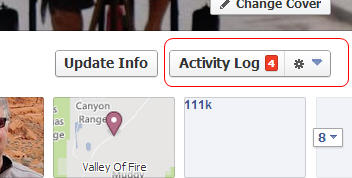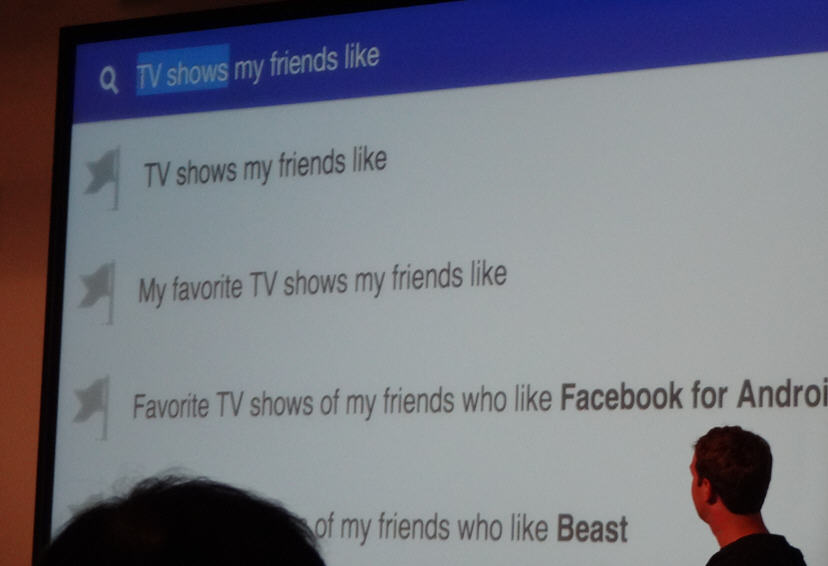Facebook’s New Search Tool: What You Need to Know to Protect Your Privacy
As he opened Tuesday’s press conference, Facebook CEO Mark Zuckerberg proudly announced that this was the first product announcement from Facebook’s sprawling new campus in Menlo Park, California. He then wasted no time talking about the company’s new “Graph search” product. Graph search, which is initially being rolled out to a small test group of Facebook users who apply will enable you to search your own social graph — content from your friends, friends of friends and things others post publicly – that lets users to dig deeply into Facebook’s vast content of information that users post.
The search feature will help users locate some of those 240 billion photos from more than a billion Facebook users but, as I discuss later, only those posts and images they already have access to based on the privacy settings associated with each post.
The new service will appear as a search bar at the top of each page. As you start typing in your search query, you immediately start seeing results based on what you’ve already typed. If you were to to type “Restaurants in New York that friends of friends in New York like,” you would get only those eating establishments favored by that group.
You can also use it to find people who share your interests. If I were to visit Seattle with my bicycle I might very well want to search for “People who like Cycling and live in Seattle, Washington,” which would show me links to pages of people who meet that criteria but only if they have allowed me (depending on how they set privacy for that post) know that they live in Seattle and share my passion for cycling.
Amazing implications
The new service has some pretty amazing implications. It’s like your own personal “big data” source but instead of drawing on a world of information — like Google — you draw on information from your own “social graph.” Facebook also has a deal with Bing that returns web search results if you can’t find results based on your social graph. Of course, like any powerful tool, there are also privacy implications, which is why it’s a good idea to scroll down to review some of the ways you can protect your privacy.
Privacy issues and tools
I asked Mark Zuckerberg whether any content that is not currently discoverable could be unearthed via the new search tool and he gave me an emphatic “no.” Search will respect the privacy policies you already have in place so if you limit the audience of a post to friends only, than only your friends will be able to find it in search. If you limit it friends of friends than only people in that group will be able to find it. But if you post it as “public,” than anyone can find it via the new search tool. Privacy settings are even more granular. You can limit any post to a subset of friends or even “only me.”
Zuckerberg did point out, however, that hiding content from your timeline does not keep it from being found via search. You could, for example, hide an unflattering photograph of yourself from your timeline but if someone else posted that picture and tagged you in it, it could be found and displayed if people search for photos of you. To that end, Facebook plans to launch an educational campaign urging users to use the service’s activity log feature to review everything they’ve posted and who can access it. You can also go back and delete a picture or a post or change the audience. And once you have access to the new search tool, you can also use it to search for pictures of yourself. To unearth those photos that you already hate, you can search for “pictures of me that I’ve hidden from my timeline.”
For specific parental advice on Facebook’s new search feature see A parent’s-eye-view of Facebook new ‘Graph’ search by my ConnectSafely.org co-director, Anne Collier.
Can’t hide through obscurity
What’s important to know about Facebook search and search in general is that obscurity is no longer a way to guarantee privacy. Things that used to be hard to find are now easier to dig up, which is why everyone needs to think about what they post and who they share it with. That’s always been true on Facebook and the Internet in general but as companies like Facebook and Google develop better ways to search, it’s truer than ever because things are now a lot easier to find.
Privacy tools
If you go to your Facebook timeline, you’ll find a link for Activity log, which lists everything that you’ve ever posted on the service as well as every post and picture where you’re tagged. Now –before search becomes widespread — is a good time to review what you’ve posted to make sure you’re comfortable with it being there, with who it’s share with and with how it’s tagged. You can remove tags and delete or change the audience for anything you’ve posted and using Facbook’s social reporting tool, you can request others to take down images or posts that you find objectionable.

You can click on Activity Log from your timeline to review, delete or change the audience for anything you’ve ever posted.
If you find pictures or posts by others, you can use Facebook’s social reporting tool to request that person take it down and automatically untag yourself.

If your’e tagged in a picture posted by someone else you can remove that tag and request the photo be taken down.
For more on Facebook privacy, select Privacy from the Facebook help menu and — for parents — see A Parents Guide to Facebook from ConnectSafely.org.
Disclosure: I’m co-director of ConnectSafely.org, a non-profit Internet safety organization that receives financial support from Facebook.


